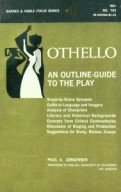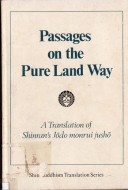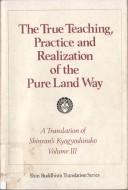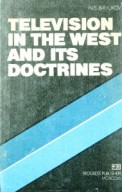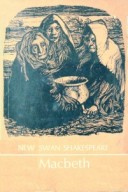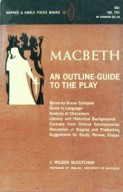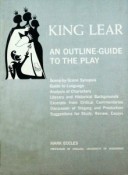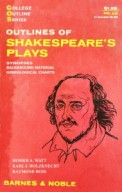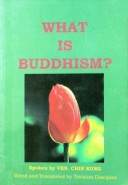Tìm Sách
Sách tiếng Anh-English >> Othello – An Outline-Guide To The Play
Thông tin tra cứu
- Tên sách : Othello – An Outline-Guide To The Play
- Tác giả : Jorgensen
- Dịch giả :
- Ngôn ngữ : Anh
- Số trang : 123
- Nhà xuất bản : Barnes & Noble- New York
- Năm xuất bản : 1964
- Phân loại : Sách tiếng Anh-English
- MCB : 1210000005518
- OPAC :
- Tóm tắt :
Othello – An Outline-Guide To The Play
Professor of English University of California
TABLE OF CONTENTS
PART ONE: INTRODUCTION Page
1. The Tragedy of Othello 1
2. Suggestions on Reading Shakespeare (reprinted from Outlines of Shakespeare Plays by Homer A. Watt, Karl J. Holzknecht, and Raymond Ross) 4
PART TWO: ANALYSIS OF THE PLAY
1. Scene-by-Scene Synopsis of Othello 12
2. Sources 17
3. Theme, Setting, Action 24
4. Guide to the Language and Imagery of Othello 28
5. Characters: Analysis of Their Qualities and Development 37
6. Critical Commentaries 60
7. Staging and Production 88
8. Suggestions and Questions for Study, Review, and Essay Topics 92
PART THREE: HISTORICAL BACKGROUND (reprinted from Macbeth: A Complete Guide to the Play by J. Wilson McCutchan)
1. Beginning and Development of English Drama 98
2. England and London, 1558-1612 102
3. Elizabethan Drama and Stage before and during Shake¬speare’s Lifetime 106
4. William Shakespeare 118
5. Chronology of Shakespeare’s Plays 121
INDEX 123
PART ONE: INTRODUCTION
1. The Tragedy of Othello, the Moor of Venice
Of Shakespeare’s four major tragedies (Hamlet, Othello, King Lear, and Macbeth), Othello is perhaps the most powerful in its emo¬tional impact. It is, for one thing, compact and intense in its con¬struction. There is also a remarkable concentration upon one person and one emotion. Some emotion is expended upon Desdemona, a little upon Cassio, and an enormous amount of hatred upon Iago, but there is relatively little dispersal of sympathy. What we feel at the end of the play is “the pity of it” (IV,i, 206), and the pity is overwhelmingly for the man who has just murdered his innocent wife. There is a terrible irony, pathetic in the. extreme, in the story of a man ignorantly killing, for the sake of “justice,” the one person whom he loves most dearly and who has come to be all that gives purpose to his life and separates him from chaos.
Students of the play will wish to examine Shakespeare’s means of achieving this power in comparison with the Italian story from which he took the plot and many of the characters. A summary of the Italian story is provided in Part II, Chapter 2. It will be par-ticularly noticeable that Shakespeare ennobles the character of his hero and also tightens up the construction, particularly of that impor¬tant part, the catastrophe.
Shakespeare’s play is also especially gripping because it deals with jealousy, one of the most painful of emotions. It is painful because it is ambivalent—made up principally of two warring elements, love and hatred. This subject will be discussed more fully later (Part II, Chapter 3).
Another important reason for the pronounced and lasting appeal of Othello is the question it raises as to why so terrible, and appar¬ently undeserved, a calamity should befall a man like Othello. Some critics, as the reader may see from the selections in Part II, Chapter 6, find Othello not at all blameless. Such critics are not, as a result, emotionally prepared (or equipped) to feel “the pity of it.” Most critics, however, have put the blame for the tragedy upon the re¬markable conjunction of a noble and innocent hero and perhaps the most gifted villain in literature. This latter view acknowledges the presence and fateful power of external evil.
The concept of external evil may be criticized as a superficial view of tragedy. Most great tragedy of the Renaissance confronts the pro¬tagonist with a moral choice. What he chooses is a result of what he is. Othello, according to the “internal evil” school of critics, would not succumb to Iago if there were not an innate quality within him which is hospitable to the Iago “poison”. There is a similarity here to Mac¬beth and his hospitality to the temptation of the witches. Othello, however, asks “Who can control his fate?” (V,ii, 265). He may well be mistaken in his interpretation of his own tragedy, as he is about some other things. Nevertheless there is a crushing amount of coin¬cidence and unlucky timing in the play; and fate (as in the loss of the handkerchief, a handkerchief rich in ominous history) cannot be entirely ruled out.
Nor can Iago be ruled out. Is he merely an externalization of some evil in Othello? Or the Vice (a mischievous tempter) of the moral¬ity play? Or the devil who comes only (as in Marlowe’s Doctor Faustus) to a person ready for him? He may be partly all these things, but he is also a superlatively interesting character in his own right, and the reader should never overlook, in his private scrutiny of the play, that it is the role of Iago that has come off best on the stage.
Even in the study, Iago’s inscrutability is one of the great mysteries of dramatic literature. Regardless of the findings of scholars, stu¬dents of the play will probably forever argue about Iago’s motiva¬tion. Other questions also arise. Why should so unnecessary an evil be so hideously successful? Why must it involve Desdemona? Is Iago insane? Has he genius? Is he, on the contrary, extremely lim¬ited in intelligence? These are some of the questions that students will always try to answer—even without any assurance of success. Iago’s strategy in the great temptation scene (III,iii) is in itself enough to reward endless inquiry into the nature of evil and the power of suggestion, and to make US ask, as did Dostoevsky (see the selec¬tion by Harold c. Goddard, Part II, Chapter 6) , whether we would ourselves be safe from an attack of Iago’s sort.
Many recent critics see in the play religious meanings. One in¬terpreter, J. A. Bryant, has read the entire play as a Biblical allegory, with Cassio as Adam, Desdemona as Christ, and Othello as God.
We must not, however, judge theological interpretation in general on the basis of so difficult a reading. Much sober criticism has been given to the question of whether Othello is saved or damned at the end of the play.
All questions of meaning aside, the play will always deeply move audiences by its ardent and powerful poetry. No one who has ever heard the play will forget the music of its great speeches: the “Fare¬well” (III,iii, 347-357), the “Pontic sea” (III,ỈỈỈ, 453-460), “It is the cause, it is the cause, my soul” (V,ii, 1-22), and “Then must you speak/Of one that lov’d not wisely, but too well” (V,ii, 343-344). All these utterances are by Othello himself. All have both sonority and sensitivity. They remind US of what we must never forget: that re¬gardless of the cleverness and the virtuoso performance of Iago, it is Othello who is noble and beautiful. It is he who, through his poetic response to love and jealousy, compels US to see as a tragedy that which in a newspaper story might be sensational scandal.
 Facebook
Facebook
 Google
Google
 Google+
Google+
